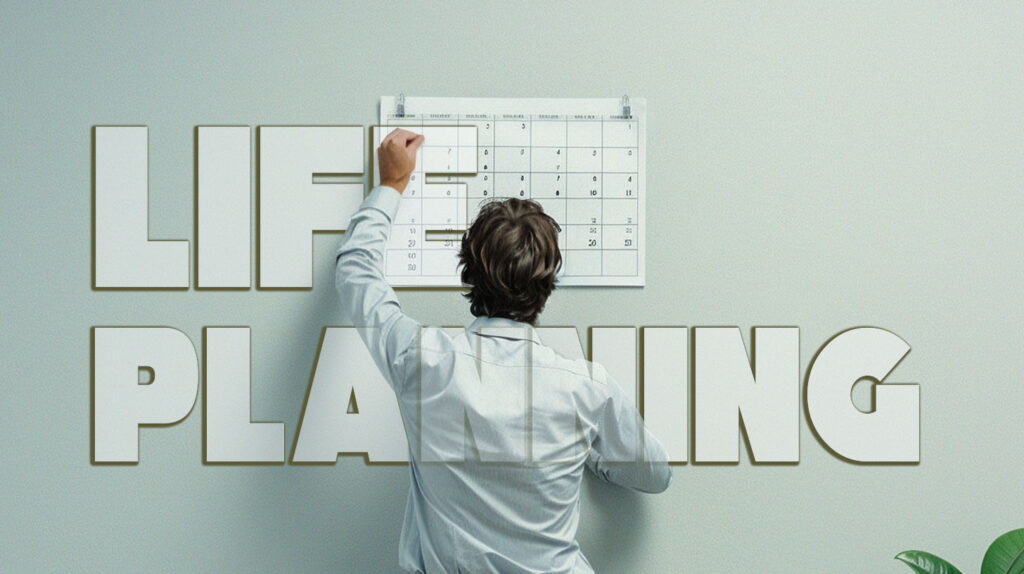
Ever feel stuck or unsure about your next professional step? A career development plan can be your key to unlocking growth and achieving your goals. It’s not just a list of aspirations—it’s a strategic roadmap to help you align your passions, skills, and opportunities.
In this article, you’ll explore 15 examples of career development goals. Whether you’re seeking a promotion, considering a career change, or enhancing your expertise, these steps can guide you to success.
After reading this article, you’ll have the insights to craft a personalized plan and set your career on a path toward fulfillment and growth!
What Is a Career Development Plan?
A career development plan is a roadmap for achieving professional growth and fulfilling career goals. It combines self-awareness, career exploration, and life planning to align passions with opportunities.
Through self-reflection, you identify strengths, weaknesses, and interests. Setting SMART goals—specific, measurable, achievable, relevant, and time-bound—is key. This plan improves employee skills and encourages professional development. Career passion examples can inspire direction and motivation.
Tracking progress ensures you’re on the right path and allows adjustments as needed. It also boosts self-awareness and gain confidence. A strong career development plan integrates personal aspirations with workplace opportunities, leading to growth and success.
With structured guidance, you can navigate career challenges and follow fulfilling opportunities effectively.
See also Career or Relationship: 6 Steps for Finding a Right Balance
Why You Need a Career Development Plan

How to Set Career Goals? Having a plan gives you direction. It makes your goals achievable and helps you stay motivated. You can identify gaps in skills, find learning opportunities, and grow at a steady pace. A clear career plan is essential for success in any industry.
Steps to Create a Career Development Plan

- Self-Assessment
Start by understanding your strengths and weaknesses. Consider what you’re good at and what you enjoy doing. Write down your skills, interests, and values. - Set Clear Goals
Decide what you want to achieve in the short and long term. Be specific. For example, instead of saying, “I want a promotion,” say, “I want to become a team leader in two years.” - Research Career Opportunities
Look into different roles in your field. Understand what skills and qualifications they require. Research can inspire you to aim for roles you might not have considered. - Identify Skill Gaps
Compare your current skills with the ones needed for your dream job. Find areas to improve, like technical abilities or soft skills. - Create an Action Plan
Write down the steps you need to take. This could include courses, networking, or gaining specific experience. Assign deadlines to each task to stay on track. - Seek Mentorship
A mentor can guide you and offer valuable advice. Find someone who has experience in your field and learn from their journey. - Develop Skills
Enroll in workshops, online courses, or certification programs. Keep learning to stay relevant in your field. - Track Your Progress
Regularly check your progress. Adjust your plan if needed. Celebrate small wins to stay motivated.
15 Examples of Career Development Goals

1. Learn a New Skill:
Acquiring new skills relevant to your job can make you more effective and valuable. For example, learning coding if you work in tech or mastering data analysis in marketing. Online courses, workshops, or mentorships are excellent ways to achieve this goal.
2. Earn a Certification:
Professional certifications, such as a PMP for project management or a CPA for accounting, demonstrate expertise. They can increase job prospects, salary potential, and recognition within your industry. Research certifications relevant to your career goals.
3. Improve Time Management:
Developing time management skills helps you balance tasks effectively, avoid burnout, and meet deadlines. Techniques like prioritizing using the Eisenhower Matrix or time-blocking can help you stay organized and productive.
4. Expand Professional Network:
Building connections opens opportunities for mentorship, collaboration, and career advancements. Attend industry conferences, join professional associations, or actively engage on platforms like LinkedIn.
5. Gain Leadership Experience:
Leadership skills are crucial for career growth. Volunteer to lead team projects, coordinate meetings, or mentor juniors. These experiences can showcase your ability to manage people and processes effectively.
6. Enhance Public Speaking Skills:
Public speaking boosts confidence and helps you articulate ideas clearly. Practice at local speaking clubs, such as Toastmasters, or present in smaller team settings to improve this valuable skill.
7. Increase Industry Knowledge:
Staying updated about trends and developments in your field ensures relevance and adaptability. Regularly read industry journals, attend seminars, or participate in webinars to stay ahead.
8. Achieve a Promotion:
Promotions often require a mix of outstanding performance, leadership skills, and strategic networking. Set clear metrics, like achieving specific sales targets or improving team efficiency, to align your performance with advancement criteria.
9. Strengthen Team Collaboration:
Teams succeed when members work harmoniously. Focus on improving communication, active listening, and conflict resolution. Participate in team-building activities to foster better collaboration.
10. Start a Personal Project:
Personal projects help you explore creativity and solve real-world problems. For instance, creating a portfolio, launching a blog, or starting a side business can build your skills and showcase initiative.
11. Create a Career Plan:
A detailed career roadmap outlines long-term goals and actionable steps. Use tools like SMART goals to ensure each step is specific, measurable, achievable, relevant, and time-bound.
12. Master a Foreign Language:
Learning a second language, such as Mandarin for business in Asia or Spanish for the U.S. market, can expand your global career opportunities. Language apps and immersive programs are effective for this.
13. Improve Technical Skills:
Keeping up with industry-standard software or tools, like Excel, Tableau, or AutoCAD, can boost efficiency and open up advanced job roles. Take online tutorials or certifications for hands-on learning.
14. Boost Emotional Intelligence:
Emotional intelligence (EI) involves understanding your emotions and those of others. Improving EI helps in team leadership and interpersonal interactions, making you a stronger team player.
15. Prepare for a Career Change:
If you’re considering a career shift, begin by researching your desired field. Gain relevant skills, attend informational interviews, or intern in the new area to ensure a smooth transition.
Key Components of a Career Development Plan
- Self-Assessment:
Evaluate your skills, strengths, values, and interests to identify career goals that align with your abilities and passions. - Career Goals:
Define both short-term and long-term objectives. Use SMART (Specific, Measurable, Achievable, Relevant, Time-bound) goals for clarity and focus. - Skill Development:
Identify skills required to achieve your goals and plan ways to develop them through courses, certifications, or training programs. - Action Plan:
Create a step-by-step strategy outlining the tasks, resources, and timelines needed to meet your career objectives. - Networking Opportunities:
Build relationships with industry professionals, mentors, and colleagues to gain insights and access career opportunities. - Progress Tracking:
Regularly review your progress toward your goals. Adjust the plan as needed to stay aligned with your evolving career aspirations. - Mentorship or Guidance:
Seek advice and support from mentors, supervisors, or career counselors to navigate challenges and refine your plan. - Education and Training:
Include opportunities for professional development, such as attending seminars, workshops, or earning advanced degrees. - Work-Life Balance:
Incorporate strategies to maintain a healthy balance between personal and professional life to sustain long-term success. - Evaluation and Adjustments:
Periodically assess the effectiveness of your plan and make necessary modifications to reflect changes in goals or circumstances.
This structured approach ensures steady growth and alignment with your career aspirations.
Tips for Success

- Stay Flexible: Your goals may change over time. Be open to adjusting your plan.
- Stay Positive: Challenges are part of growth. Learn from failures and keep moving forward.
- Stay Focused: Avoid distractions and keep your eyes on the bigger picture.
See also Career Goals Worksheet: 5 Important Aspects to Include in Your Plan
Career Development Plan: A Recap
A Career Development Plan is essential for building a fulfilling professional journey. It helps align career goals with life aspirations and sets achievable progress markers. By using life planning tools, individuals can define clear objectives for growth.
Career goals for college students benefit them by connecting academic choices to future roles. Employees in current positions can use these plans to enhance skills and advance in their fields.
Professional development and skill-building create a pathway to career success. Support from mentors and structured processes ensures steady progress. Career development plans are adaptable, reflecting changes in roles or goals.
With focus and persistence, they transform ambitions into actionable steps, leading to personal and professional fulfillment.


